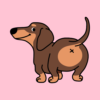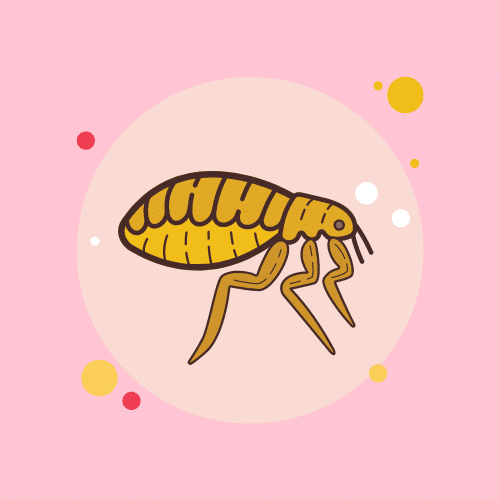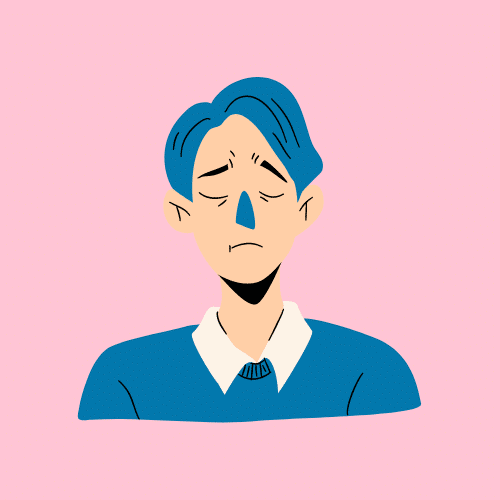When your furry friend doesn’t want to eat in the morning, it’s easy to worry. It may not be easy when you just want to make them feel better by getting them to eat, and you have no idea why they refuse.
Why doesn’t my dog eat in the morning? There’s a chance that your pup’s health problems are causing them to skip meals in the morning. It’s also possible that this is a developed behaviour. They could have something waiting for them that’s even tastier. Or, if they don’t eat breakfast, you pay more attention to them.
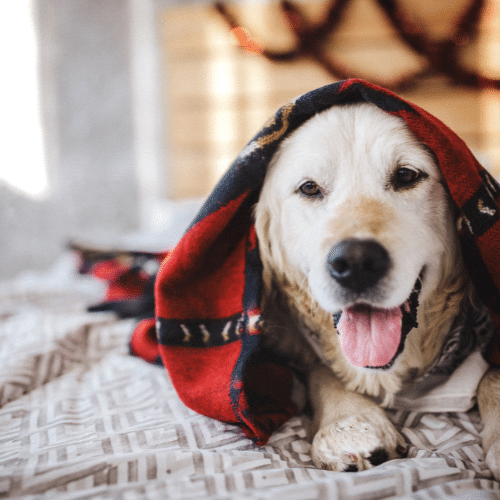
Read on for possible causes and solutions if your pup is acting abnormally and not eating first thing in the morning.
Reasons Why A Dog Won’t Eat In The Morning
When their dogs don’t eat in the morning, many people don’t understand why their pets act this way. Several reasons your canine companion might not be interested in eating in the morning.
Behavior Problems
Behavioral issues might cause a dog to stop eating. These issues are not always brought on by the dog that refuses to take its food. Your pup’s reaction may be related to another dog or pet that lives in the house with you. If your dog suddenly stops eating, for instance, it might be because another dog in the area is either stealing its food or snarling at him as it consumes. A dog can refuse to eat if he’s a slow eater. He may prefer to eat by himself to take his time. If you have more than one dog, it’s usually a good idea to feed them in different rooms or cages so that each dog may eat in peace, especially if you have a large household. When dogs are left alone with their food, they will frequently begin eating again.
Changing Feeding Schedule
If you have just changed how you feed your pup, it is possible that they are not acclimated to the need to eat first thing in the morning. In many cases, the owner prefers to provide free feeding for their dog. Ensuring that their dogs use the food bowls are always full of food so that the dogs may eat whenever they wish.
If you switch to scheduled meals, such as breakfast and supper, your dog will also need time to adjust. It’s possible that they broke their fast in the early afternoon after waiting until the morning. So, they’ll have to learn how to make their stomachs hungry for breakfast.
A Matter of Anxiety
The feelings that a dog is experiencing are frequently reflected in its actions. It’s possible that a nervous dog won’t want to eat when it becomes hungry. This is because anxiety can produce a lack of appetite as well as nausea.
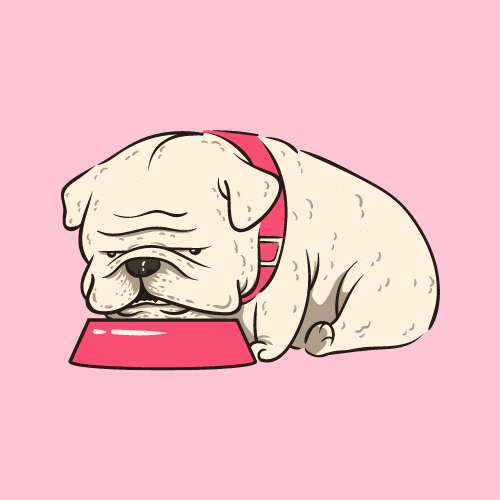
In addition to these behaviors, anxious canines may whine, bark, pace, pant, or have dilated pupils. If your furry friend is displaying any of these symptoms, it may be beneficial to seek the advice of a qualified animal behaviorist or veterinarian. They can identify your pup’s anxiety source and propose treatment choices.
Previously Overfed
When your pup doesn’t feel like eating food in the morning, it may be because of anything that happened the night before.
It’s possible that he had too much to eat the night before if you give him more food than his body requires or if you give him treats after he’s finished eating for the day.
Feeling Overwhelmed
Most of the time, your house will be busiest in the morning. Your pup can feel overstimulated if you are hurrying about getting ready for work or if your kids are making a lot of noise as they get ready for school.
Some dog breeds are more likely to suffer from anxiety than others. It is natural for a worried animal to lose its appetite. They may develop separation anxiety if they link eating breakfast with your departure.
Stomach Upset
Even though dogs are carnivores, they are delighted to scavenge in the home. Dogs often steal food from the counter, table, and trash when they have the chance. Some dogs go throughout the neighbourhood eating dog poop and other exclusively delicious items to canines. And if you take your canine companion to a park or any other public site, he can get stuff such as sweets and other items left there by other people. As a direct consequence of this, canines can occasionally consume something they should not, and they upset their stomachs.
Used to Free Feeding
Feeding your dog can be scheduled or free. Free feeding is when you either let your dog eat whenever they want throughout the day by leaving food out for them, or you wait for them to let you know when they are starving before feeding them. It is entirely up to you to choose what kind of diet is best for your dog, as neither option is inherently superior or worse.
If your canine companion is a free feeder and you are trying to get it to eat on a schedule, your dog may not want to eat in the morning.
Looking For Something Better
Like people, canines may be creatures of habit; if they’re used to a specific meal or reward, it can be hard to adjust. If your dog is usually picky about what it eats, it might not be interested in what you’re giving it for breakfast. If this is the case, it may be beneficial to experiment with various foods or flavours to determine whether or not this makes a difference.
Dental Disease
Your dog may be experiencing discomfort in its mouth, which keeps it from wanting to eat. Check whether they have any oral tumours, damaged or loose teeth, severe gingivitis, or even just regular gingivitis. Abscesses on the roots of teeth are one example of something that can develop below the gums yet remain undetected.
Something Wrong With the Food
If your dog generally eats breakfast but stops, especially if you give anything new, there may be something wrong with their food. Even if it is a freshly manufactured batch, there may have been a flaw in the production process or a defect in the packaging that allowed germs to penetrate it and cause an infection.
How to Feed Your Dog in the Morning
Provide a Calm Environment
Establishing a peaceful atmosphere is of the greatest priority. Avoid playing fetch or going for a walk that might make your dog nervous or excited.
Instead, you should provide them with food and drink in a calm setting. You might also try giving them more small meals instead of one big one in the morning.
Check the Food
Providing food of a good grade is another strategy you may use to encourage your dog to eat in the morning. It is possible that your dog will not consume the food if it does not excite or engage them in any way.
You might try moving to a food that has a greater protein content or to a brand that is of a higher quality. You might try including a special treat or toy in their meal bowls in the morning. This will help them consume all of their breakfast by making it more fun and motivating them to do so.
Enhance Appetite With Exercise
Exercising is the most effective strategy to stimulate hunger since it burns calories. Before breakfast, taking your dog for a walk or letting him run about in the yard is probably a good idea. If your dog just woke up and isn’t very active, it may not require food.
- How to Cope After Rehoming a Dog?
- How to Get Dog Odor Out of Blankets [Full Guide]
- Can a Hairball Kill a Dog? [Ultimate Guide]
Stop Free-Feeding
If your pup is accustomed to free feeding, it may take some time for your pup to adjust to having scheduled meals. Maintaining a consistent level of discipline when weaning them off is essential. In addition, do not provide snacks or food intended for humans as a substitute.
Allow your doggie access to their food for 15 minutes so that they may become accustomed to having scheduled meals. Take away the bowl if they show no sign of wanting to eat within the allotted time.
Seeing your pup go without food may seem harsh, but they will learn quickly to take their food when it is presented to them if you continue this practice.
Feed in Private
If you have many pets or a hectic environment with numerous people, your dog may not be eating. As a result, you should attempt feeding your canine companion in a private and peaceful location to see whether or not this influences the amount of food consumed during breakfast.
Consult Your Local Veterinarian
Visiting your veterinarian is among the most effective techniques you can do for your pet. he will be able to provide you with detailed guidance based on the nutritional and health requirements of your dog. In addition to that, they could be able to suggest a food that is more appetizing for your canine companion.

Doctor of Veterinary Medicine (D.V.M.) at Nation Taiwan University,Master of Science (M.S.) in Biomedical Engineering at National Taiwan University of Science and Technology

